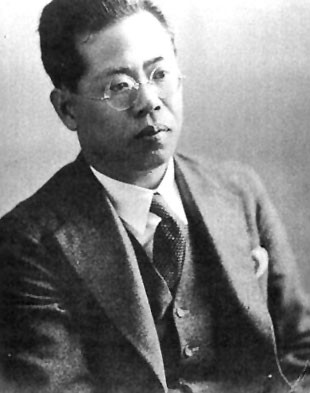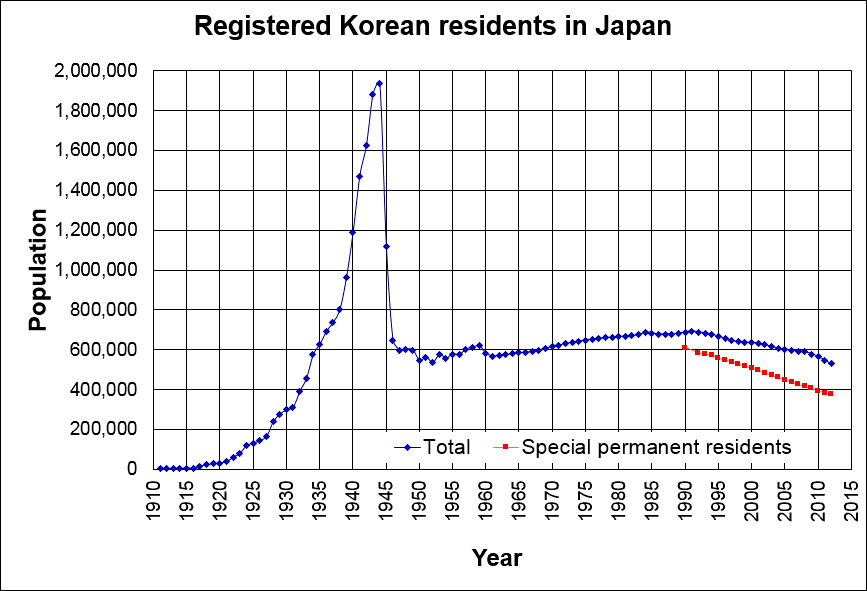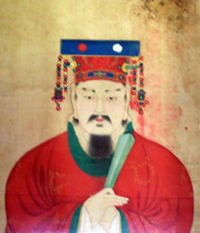|
List Of Koreans In Japan
This is a list of notable Zainichi Koreans or notable Japanese people of Korean descent. Politics and law * Arai Shoukei, politician, House of Representatives (Real Name: ''Park Kyung-jae'') * Park Choon-Geum, politician, House of Representatives * Togo Shigenori, Minister of Foreign Affairs (in 1941), Minister of Greater East Asia (in 1945) * Haku Shinkun, politician, House of Councillors (Real Name: ''Baek Jinhoon'') * Kim Ch'on-hae, leading official of the Japanese Communist Party (Originally from Ulsan, South Korea) * Lee Kyung-jae, local activist * Lee Myung-bak, President of South Korea (born in Osaka, ancestral roots in Pohang, North Gyeongsang) *Kim Pyong-sik, North Korean politician, Vice President of North Korea and chairman of the Korean Social Democratic Party (Originally from South Jeolla Province, South Korea) *Han Duk-su, North Korean politician, founder and first chairman of Chongryon *So Man-sul, North Korean politician, Supreme People’s Assembly of North Kor ... [...More Info...] [...Related Items...] OR: [Wikipedia] [Google] [Baidu] |
Zainichi Koreans
comprise ethnic Koreans who have permanent residency status in Japan or who have become Japanese citizens, and whose immigration to Japan originated before 1945, or who are descendants of those immigrants. They are a group distinct from South Korean nationals who have emigrated to Japan after the end of World War II and the division of Korea. They currently constitute the second largest ethnic minority group in Japan after Chinese immigrants, due to many Koreans assimilating into the general Japanese population. The majority of Koreans in Japan are , often known simply as , who are ethnic Korean permanent residents of Japan. The term Zainichi Korean refers only to long-term Korean residents of Japan who trace their roots to Korea under Japanese rule, distinguishing them from the later wave of Korean migrants who came mostly in the 1980s, and from pre-modern immigrants dating back to antiquity who may themselves be the ancestors of the Japanese people. The Japanese word "Zaini ... [...More Info...] [...Related Items...] OR: [Wikipedia] [Google] [Baidu] |
Politics Of North Korea
The politics of North Korea (officially the Democratic People's Republic of Korea or DPRK) takes place within the framework of the official state philosophy, Kimilsungism-Kimjongilism. ''Juche'', which is a part of Kimilsungism-Kimjongilism, is the belief that only through self-reliance and a strong independent state, can true socialism be achieved.B. R. Myers: ''The Cleanest Race: How North Koreans See Themselves and Why It Matters.'' pp. 45–46. Paperback edition. (2011) North Korea's political system is built upon the principle of centralization. While the North Korean constitution formally guarantees protection of human rights, in practice there are severe limits on freedom of expression, and the government closely supervises the lives of North Korean citizens. The constitution defines North Korea as "a dictatorship of people's democracy" under the leadership of the Workers' Party of Korea (WPK), which is given legal supremacy over other political parties. WPK Gene ... [...More Info...] [...Related Items...] OR: [Wikipedia] [Google] [Baidu] |
Supreme Leader Of North Korea
The supreme leader () of North Korea is the ''de facto'' paramount leader of the Workers' Party of Korea, the state and the Korean People's Army. The title has not been written into the national constitution as a separate office, but it currently states that the president of the State Affairs Commission is the supreme leader of North Korea. Likewise, according to the WPK Charter, the general secretary of the WPK is the supreme leader of the Workers' Party. Formerly, under Kim Jong-il, this title was bestowed on the office of Chairman of the National Defence Commission, who was also the WPK general secretary. The first leader of the state prior to the existence of North Korea was Terenty Shtykov who served as the head of the Soviet Civil Administration, the governing authority controlled by the Soviet Union that ruled the northern half of Korea from 1945 to 1948. The first priority political position of the supreme leader is the leadership of the Workers' Party. That post was ... [...More Info...] [...Related Items...] OR: [Wikipedia] [Google] [Baidu] |
North Korea
North Korea, officially the Democratic People's Republic of Korea (DPRK), is a country in East Asia. It constitutes the northern half of the Korean Peninsula and shares borders with China and Russia to the north, at the Yalu (Amnok) and Tumen rivers, and South Korea to the south at the Korean Demilitarized Zone. North Korea's border with South Korea is a disputed border as both countries claim the entirety of the Korean Peninsula. The country's western border is formed by the Yellow Sea, while its eastern border is defined by the Sea of Japan. North Korea, like its southern counterpart, claims to be the legitimate government of the entire peninsula and adjacent islands. Pyongyang is the capital and largest city. In 1910, Korea was annexed by the Empire of Japan. In 1945, after the Japanese surrender at the end of World War II, Korea was divided into two zones along the 38th parallel, with the north occupied by the Soviet Union and the south occupied by the U ... [...More Info...] [...Related Items...] OR: [Wikipedia] [Google] [Baidu] |
Ko Yong-hui
Ko Yong-hui (; ; 26 June 1952 – 13 August 2004), also spelled Ko Young-hee, was the consort of North Korean supreme leader Kim Jong-il and the mother of his successor, Kim Jong-un. Within North Korea, she is only referred to by titles, such as "The Respected Mother who is the Most Faithful and Loyal 'Subject' to the Dear Leader Comrade Supreme Commander", "The Mother of Pyongyang", and "The Mother of Great Songun Korea". Biography Born in Osaka, Japan, to Korean parents, Ko's birth date and Japanese name in Japanese official records are 26 June 1952 and Takada Hime (高田姫), respectively. Her father, Ko Gyon-tek, worked in an Osaka sewing factory run by Japan's ministry of war, a 16th generation descendant of the Joseon scholar official, Go Deuk-jong. She, along with her family, moved to North Korea in May 1961 or in 1962 as part of a repatriation program. In the early 1970s, she began working as a dancer for the Mansudae Art Troupe in Pyongyang. Her younger sister Ko ... [...More Info...] [...Related Items...] OR: [Wikipedia] [Google] [Baidu] |
South Korea
South Korea, officially the Republic of Korea (ROK), is a country in East Asia, constituting the southern part of the Korea, Korean Peninsula and sharing a Korean Demilitarized Zone, land border with North Korea. Its western border is formed by the Yellow Sea, while its eastern border is defined by the Sea of Japan. South Korea claims to be the sole legitimate government of the entire peninsula and List of islands of South Korea, adjacent islands. It has a Demographics of South Korea, population of 51.75 million, of which roughly half live in the Seoul Capital Area, the List of metropolitan areas by population, fourth most populous metropolitan area in the world. Other major cities include Incheon, Busan, and Daegu. The Korean Peninsula was inhabited as early as the Lower Paleolithic period. Its Gojoseon, first kingdom was noted in Chinese records in the early 7th century BCE. Following the unification of the Three Kingdoms of Korea into Unified Silla, Silla and Balhae in the ... [...More Info...] [...Related Items...] OR: [Wikipedia] [Google] [Baidu] |
Gyeongsangbuk-do
North Gyeongsang Province ( ko, 경상북도, translit=Gyeongsangbuk-do, ) is a province in eastern South Korea. The province was formed in 1896 from the northern half of the former Gyeongsang province, and remained a province of Korea until the country's division in 1945, then became part of South Korea. Daegu was the capital of North Gyeongsang Province between 1896 and 1981, but has not been a part of the province since 1981. In 2016, the provincial capital moved from Daegu to Andong. The area of the province is , 19.1 percent of the total area of South Korea. Geography and climate The province is part of the Yeongnam region, on the south by Gyeongsangnam-do, on the west by Jeollabuk-do and Chungcheongbuk-do Provinces, and on the north by Gangwon-do Province. During the summer, North Gyeongsang Province is perhaps the hottest province in South Korea. This is helped by the fact that the province is largely surrounded by mountains: the Taebaek Mountains in the east and the ... [...More Info...] [...Related Items...] OR: [Wikipedia] [Google] [Baidu] |
Gyeongju
Gyeongju ( ko, 경주, ), historically known as ''Seorabeol'' ( ko, 서라벌, ), is a coastal city in the far southeastern corner of North Gyeongsang Province in South Korea. It is the second largest city by area in the province after Andong, covering with a population of 264,091 people (as of December 2012.) Gyeongju is southeast of Seoul, and east of Daegu. The city borders Cheongdo and Yeongcheon to the west, Ulsan to the south and Pohang to the north, while to the east lies the coast of the Sea of Japan. Numerous low mountains—outliers of the Taebaek range—are scattered around the city. Gyeongju was the capital of the ancient kingdom of Silla (57 BC – 935 AD), which ruled about two-thirds of the Korean Peninsula at its height between the 7th and 9th centuries, for close to one thousand years. Later Silla was a prosperous and wealthy country, and its metropolitan capital of Gyeongju was the fourth largest city in the world. A vast number of archaeological s ... [...More Info...] [...Related Items...] OR: [Wikipedia] [Google] [Baidu] |
Supreme People’s Assembly
The Supreme People's Assembly (SPA; ) is the unicameral legislature of the Democratic People's Republic of Korea (DPRK), commonly known as North Korea. It consists of one deputy from each of the DPRK's 687 constituencies, elected to five-year terms. The constitution identifies the SPA as the "highest organ of state power" and all state positions, including the President of the State Affairs and the Premier of the Cabinet, trace their authority to it. The Assembly typically does not legislate directly, but delegates that task to a smaller Standing Committee. The policies legislated by the SPA are carried out by government officials subject to oversight and correction by the Workers' Party of Korea. The Workers' Party of Korea, which the constitution recognizes as the state's leading party, dominates the Assembly in a monopoly coalition with the Social Democratic Party and the Chondoist Chongu Party called the Democratic Front for the Reunification of the Fatherland. Elections ... [...More Info...] [...Related Items...] OR: [Wikipedia] [Google] [Baidu] |
So Man-sul
So Man-sul (; 17 April 1927 – 19 February 2012) was the chairman of the Central Standing Committee of the pro-Pyongyang General Association of Korean Residents in Japan (Chongryon), as well as a member of Supreme People's Assembly of the Democratic People's Republic of Korea (North Korea). In May 2006, he met his counterpart of the pro-Seoul Korean association Mindan, Ha Byung-ok. According to a joint statement signed on 17 May 2006, "Chongryon and Mindan affirmed each other that they would surely convert the long-standing antagonism and confrontation between the two organizations into reconciliation and concord in conformity with the trend of national history advancing toward national unity and reunification in the idea of 'By our nation itself', the main spirit of the 15 June joint declaration". However, Mindan's regional chapters strongly opposed the statement, and Ha Byung-ok was expelled from Mindan for attempting reconciliation with Chongryon. The new Mindan leadership cri ... [...More Info...] [...Related Items...] OR: [Wikipedia] [Google] [Baidu] |
Chongryon
The General Association of Korean Residents in Japan, " ''''. Retrieved on 17 January 2009. abbreviated as ( Korean: , : ) or (Japanese: ), is one of two main organisations for (or ) Koreans (Korean citizens or residents of Japan) and has close ties to (DPRK). As there are no diplomatic [...More Info...] [...Related Items...] OR: [Wikipedia] [Google] [Baidu] |
Han Duk-su
Han Deok-su (1907–2001) founded the General Association of Korean Residents in Japan (Chongryon) in 1955. When Han died in 2001, a funeral committee was appointed with So Man-sul So Man-sul (; 17 April 1927 – 19 February 2012) was the chairman of the Central Standing Committee of the pro-Pyongyang General Association of Korean Residents in Japan (Chongryon), as well as a member of Supreme People's Assembly of the Democra ... as its chairman and Ho Jong-man as vice chairman. References Zainichi Korean people People from North Gyeongsang Province 1907 births 2001 deaths {{Korea-bio-stub ... [...More Info...] [...Related Items...] OR: [Wikipedia] [Google] [Baidu] |








